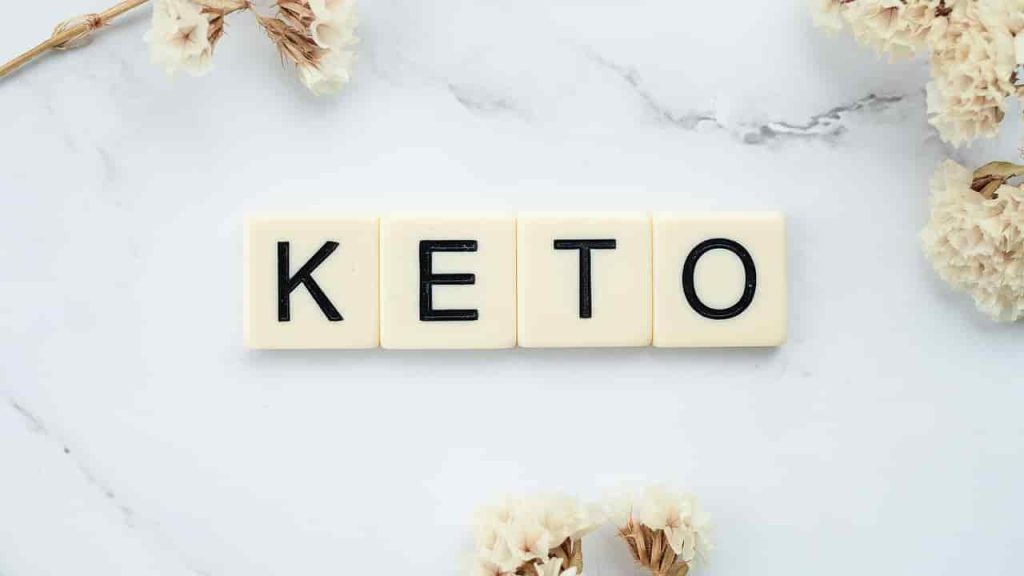The Keto Diet: A Comprehensive Guide
The ketogenic diet, commonly referred to as the keto diet, is a low-carb, high-fat diet that has gained immense popularity in recent years. The idea behind the diet is to drastically reduce carbohydrate intake and replace it with healthy fats to put the body in a state of ketosis. This state leads to the body burning fat for energy instead of carbohydrates, which can lead to weight loss and various health benefits. In this article, we will delve into the keto diet, covering everything from what it is and how it works to what foods to eat and what to avoid.
What is the Keto Diet?
The ketogenic diet is a type of low-carb, high-fat diet that has been around for nearly a century. It was originally developed as a therapeutic diet for children with epilepsy, but has since been adopted as a weight loss diet and a means of improving various health markers. The goal of the ketogenic diet is to put the body into a state of ketosis, where it burns fat for energy instead of carbohydrates.
How Does the Keto Diet Work?
The body typically runs on glucose (sugar) as its primary source of energy. When you eat a diet high in carbohydrates, the body converts these carbs into glucose, which it then uses for energy. When you significantly reduce your carbohydrate intake, as you do on the keto diet, the body is forced to look for alternative sources of fuel. This is where ketosis comes in.
Ketosis is a metabolic state in which the body burns fat for energy instead of carbohydrates. When the body is in ketosis, it produces ketones, which are produced from the breakdown of fat in the liver. These ketones can then be used as an alternative energy source to glucose.
Benefits of the Keto Diet
The keto diet has been shown to offer various health benefits, including weight loss, improved cholesterol levels, and better blood sugar control. Additionally, the diet has been shown to have benefits for certain medical conditions, such as epilepsy, polycystic ovary syndrome (PCOS), and type 2 diabetes.
Weight Loss
One of the most well-known benefits of the keto diet is its ability to promote weight loss. When the body is in a state of ketosis, it burns fat for energy instead of carbohydrates, which can lead to significant weight loss. Additionally, the high-fat content of the diet can help keep you feeling full and satisfied, which can help prevent overeating and promote weight loss.
Improved Cholesterol Levels
Studies have shown that the keto diet can improve cholesterol levels, particularly LDL (bad) cholesterol. The high-fat content of the diet can help improve the ratio of HDL (good) cholesterol to LDL cholesterol, which can reduce the risk of heart disease.
Better Blood Sugar Control
The keto diet has been shown to have a positive impact on blood sugar control, particularly in people with type 2 diabetes. By reducing carbohydrate intake and increasing fat intake, the diet can help regulate blood sugar levels and improve insulin sensitivity.
Keto Meal Plan and Keto Recipes
When following the keto diet, it is important to pay attention to your macro nutrient ratios. On the keto diet, you should aim to eat 70-75% of your calories from fat, 20-25% from protein, and just 5-10% from carbohydrates. To help you get started, here is a 7-day keto meal plan:
Day 1:
- Breakfast: scrambled eggs with avocado and bacon
- Lunch: salad with grilled chicken, avocado, and a high-fat dressing
- Dinner: salmon with roasted vegetables
Day 2:
- Breakfast: almond flour pancakes with butter and sugar-free syrup
- Lunch: cheese and vegetable omelette
- Dinner: grilled steak with a side of sautéed spinach
Day 3:
- Breakfast: Greek yogurt with berries and nuts
- Lunch: chicken salad with olive oil and vinegar dressing
- Dinner: pork chops with roasted garlic and asparagus
Day 4:
- Breakfast: smoothie bowl with almond milk, spinach, and coconut oil
- Lunch: tuna salad with mayonnaise and celery
- Dinner: chicken stir-fry with vegetables and a high-fat sauce
Day 5:
- Breakfast: bacon and eggs
- Lunch: hamburger with cheese and avocado
- Dinner: shrimp scampi with zucchini noodles
Day 6:
- Breakfast: cottage cheese with berries and nuts
- Lunch: grilled chicken with a side of cauliflower rice
- Dinner: salmon with a side of roasted brussels sprouts
Day 7:
- Breakfast: oatmeal with almond milk and nuts
- Lunch: turkey and cheese roll-up with mustard
- Dinner: beef and broccoli stir-fry with a high-fat sauce
In addition to the meal plan, here are a few keto recipes to try:
- Keto pizza with a cauliflower crust
- Keto chicken alfredo with zucchini noodles
- Keto fat bombs (sweet treats high in healthy fats)
- Keto chocolate chip cookies
Keto Foods and Keto Approved Foods
When following the keto diet, it is important to choose the right foods. Some of the best keto foods include:
- Meat: beef, chicken, pork, etc.
- Fish: salmon, tuna, etc.
- Eggs
- Cheese
- Butter and cream
- Nuts and seeds
- Avocado
- Berries (in moderation)
- Low-carb vegetables: spinach, broccoli, cauliflower, etc.
FOODS TO AVOID ON THE KETO DIET
To stay in ketosis, it is important to avoid foods that are high in carbohydrates. Some foods to avoid include:
- Sugary foods and drinks
- Grains: bread, pasta, rice, etc.
- High-carb fruits: bananas, grapes, etc.
- Starchy vegetables: potatoes, corn, etc.
- Processed snacks: chips, crackers, etc.
KETO SUPPLEMENTS AND KETO MACROS
While not necessary, some people choose to take keto supplements to help support their diet. Some popular keto supplements include:
- MCT oil (medium-chain triglycerides)
- Exogenous ketones
- Electrolyte supplements
- Omega-3 supplements
When following the keto diet, it is important to track your macros to ensure you are getting the right ratio of fat, protein, and carbohydrates. There are various apps and websites that can help you track your macros and monitor your progress.
KETO LIFESTYLE AND KETO SUCCESS STORIES
The keto diet is more than just a diet – it is a lifestyle. To be successful on the keto diet, it is important to embrace the lifestyle and make healthy food choices. Additionally, surrounding yourself with a supportive community, such as a keto Facebook group or a friend who is also on the diet, can help you stay motivated and on track.
There are countless success stories of people who have seen significant health improvements and weight loss on the keto diet. Whether you are looking to lose weight, improve your health, or manage a health condition such as diabetes, the keto diet can offer many benefits. By following a low-carb, high-fat diet and tracking your macros, you can experience increased energy, improved mental clarity, and a healthier overall lifestyle.
KETO DIET AND DIABETES
The keto diet has been shown to be especially beneficial for people with type 2 diabetes. By reducing the amount of carbohydrates in your diet and increasing the amount of healthy fats, the keto diet can help to improve insulin sensitivity and regulate blood sugar levels.
However, it is important to note that everyone is different and what works for one person may not work for another. It is always recommended to speak with a healthcare professional before starting any new diet, especially if you have a pre-existing health condition.
KETO NUTRITION AND KETO FRIENDLY RECIPES
When following the keto diet, it is important to focus on nutrient-dense foods and avoid processed foods. The keto diet can be a great way to get more vitamins and minerals from healthy foods such as meat, fish, eggs, cheese, and low-carb vegetables.
There are also many keto friendly recipes available, making it easy to stick to the diet even when eating out or traveling. From keto breakfast ideas to keto snacks and keto friendly desserts, there is something for everyone on the keto diet.
KETO BEFORE AND AFTER
Many people see amazing results on the keto diet, both in terms of weight loss and improved health markers. However, as with any diet, it is important to be patient and consistent in order to see results.
Before starting the keto diet, it is recommended to take before photos and measurements to track your progress. Additionally, regularly tracking your macros and monitoring your symptoms can help you to see the positive changes that are occurring in your body.
In conclusion, the keto diet is a low-carb, high-fat diet that can offer many benefits for weight loss and improved health. Whether you are a beginner or an experienced dieter, the keto diet can help you to achieve your goals and lead a healthier lifestyle.







